Chasing red: The key moments that have cost Chris Froome Vuelta victory
We take a look at Chris Froome's tumultuous attempts at Vuelta a España victory and where he lost previous editions
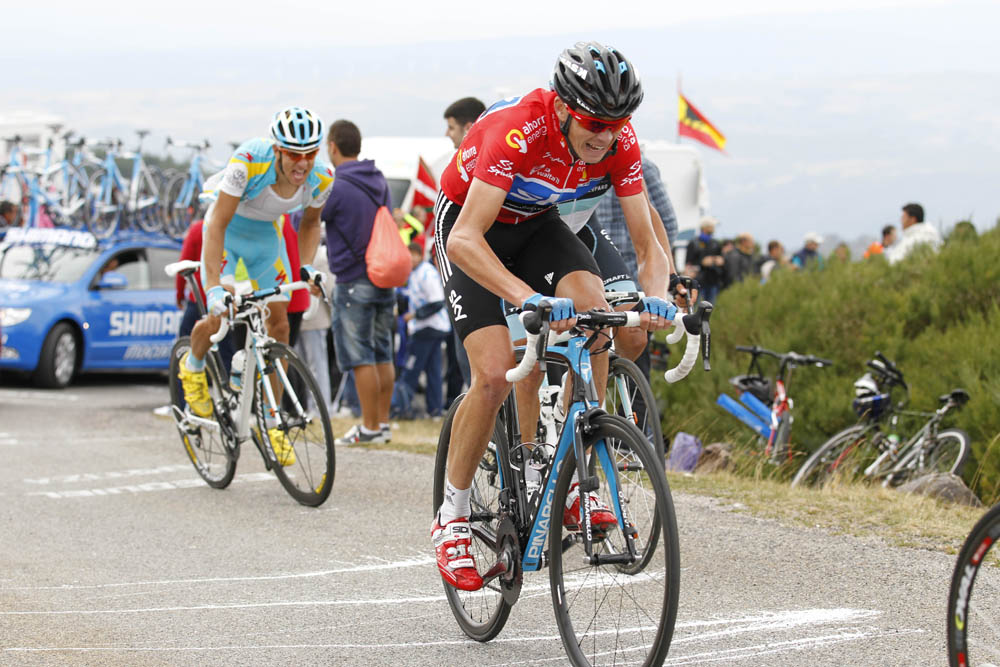
Chris Froome in the 2011 Vuelta a Espana, where he finished second overall
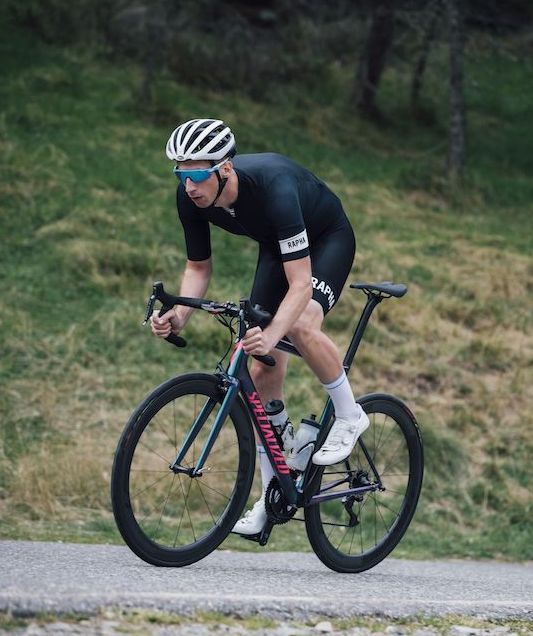
Stage three of the 2017 Vuelta a España saw Chris Froome take the leader's red jersey for the first time since 2011. On that occasion, he wore it for one day - taking it from Bauke Mollema after the stage 10 individual time trial before conceding it to his team leader Bradley Wiggins on the following day's summit finish.
That race for Froome - now a four time winner of the Tour de France - was a watershed moment. It was his fourth ever Grand Tour start and the unprecedented success of that Vuelta (in which he finished second) began his climb to the illustrious status of Tour great he now holds.
But while Froome has been able to dominate the Tour since 2013, he's never been able to crack the Vuelta's overall standings, taking second place three times in the five editions he's featured in.
Is 2017 the year Froome can finally his Vuelta demons behind him? If he can do it, he'll be the first man to achieve a double victory of the Tour and Vuelta in the same year since the latter moved to it's late summer slot in 1995; surely a crowning achievement on top of everything he's accomplished already.
A victory in Spain would be a long time coming, and surely an emotional one for Froome. But what have been the reasons behind Froome missing out on Vuelta victory? Here we pick out the key moments that have cost Froome the race in the past, and certainly moments he'd like to avoid a repeat of in 2017.
2011 - Working for Wiggins
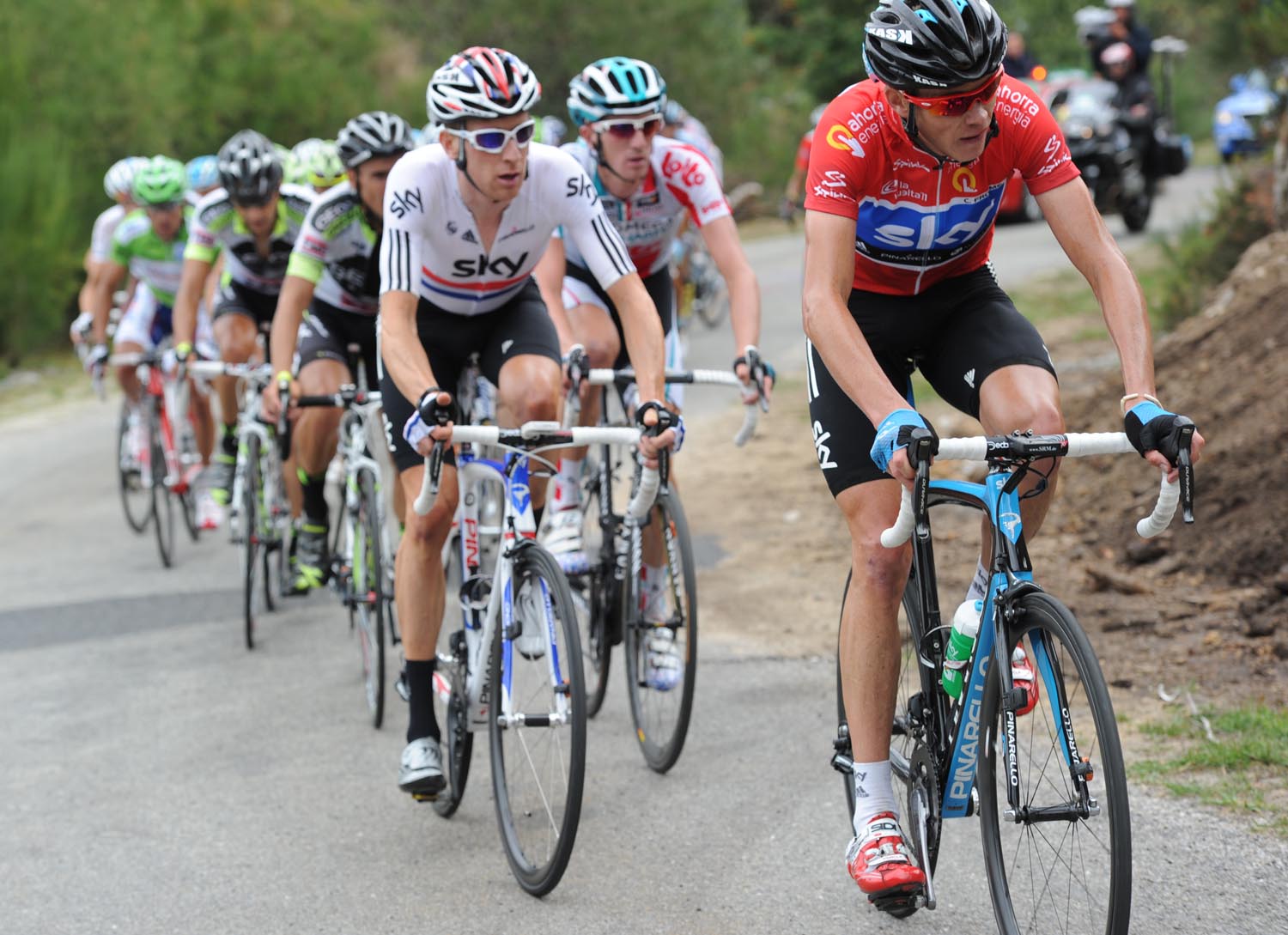
Having joined British squad Team Sky in 2010, Froome's first Grand Tour with the team came in 2011 at the Vuelta, where he would ride in support of Bradley Wiggins.
Get The Leadout Newsletter
The latest race content, interviews, features, reviews and expert buying guides, direct to your inbox!
While Wiggins was the outright leader, having crashed out of the Tour de France that year in a bid for yellow, Froome was only selected at the last minute and was far from a rider Sky considered to be a first pick for three-week races.
Froome's class began to show through though on the individual time trial on stage 10, where he was the only rider to get anywhere near stage winner Tony Martin and he took the overall lead for the first and only time in his career until 2017.
But the then 26-year-old was still charged with supporting Wiggins on the following stage's summit finish to Estación de Montaña Manzaneda, where he was ultimately dropped and conceded the red jersey to his team leader.
Stage 15's summit finish to the Angliru really showed that Froome was the stronger of the pair. As Juan José Cobo attacked (and eventually won the Vuelta at this point), Froome stayed with Wiggins until it was too late to close the gap, dropping his team leader on the final couple of kilometres of the climb and losing 48 seconds to Cobo.
Froome would be Sky's dominant rider for the rest of the race, taking a victory on stage 17 but unable to remove Cobo from top spot.
The Spaniard won the Vuelta title by 13 seconds over Froome, which is still the Brit's closest finish to top spot to date.
2012 - Second week struggles
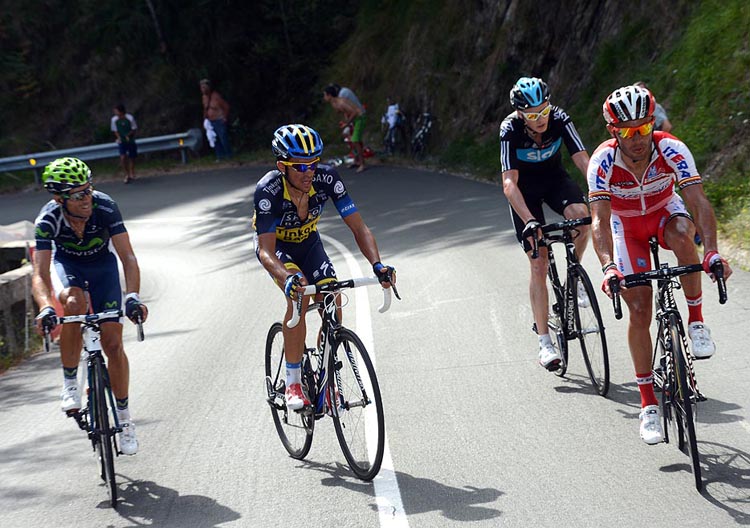
Having showed once again that he was perhaps Sky's strongest climber after he finished second at the Tour de France in 2012 and played more than a guiding hand in helping Bradley Wiggins to victory, Froome was given outright team leadership for the first time at a Grand Tour at the Vuelta a España.
After a big year of the Tour and the Olympic Games in London, it was unknown how Froome would match up to specialist climbers who'd skipped the Tour, and especially former winner Alberto Contador, who had just returned from a doping ban.
Froome fared well in opening week and a half, sitting 51 seconds off the race leader Joaquim Rodriguez ahead of a trio of mountain stage before the second rest day.
But that's where it began to fall down for Froome, losing 38 seconds to the red jersey on the summit finish to Ancares, before shelling another 35 the next day Lagos De Covadonga.
It was stage 16 that was the final blow for Froome though, collapsing to lose 2-32 to Rodriguez and 2-30 to eventual winner Contador.
The next week would continue to be a struggle, and by the time the race reached Madrid, he was over 10 minutes behind Contador in fourth. Put this one down as a steep learning curve.
2014 - A costly time trial
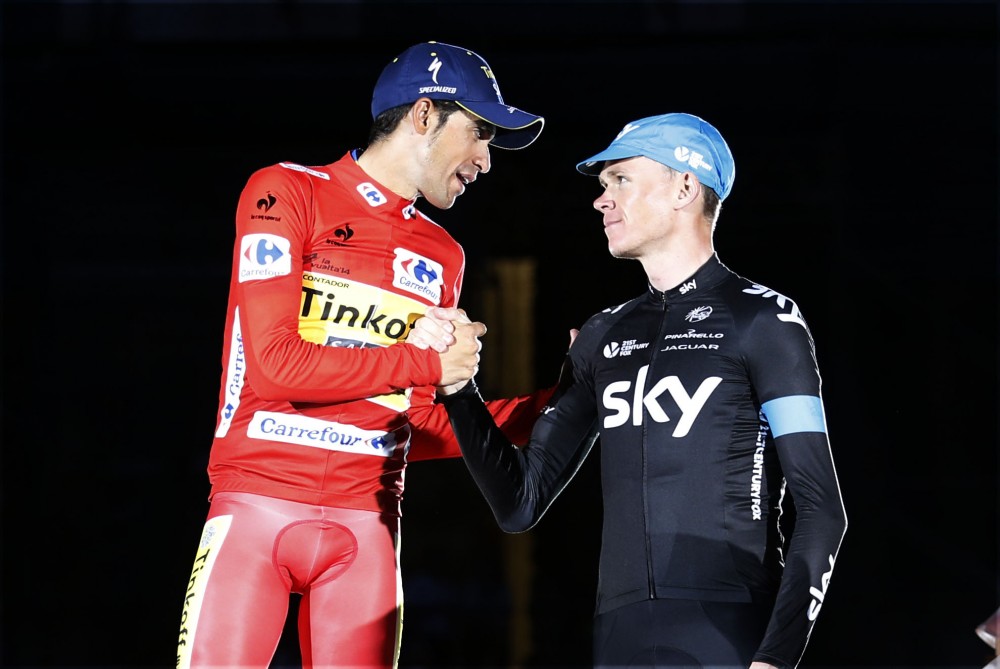
2014 had been disastrous for Froome after he was unable to defend his Tour de France title after crashing out in the first week of the race.
Likewise Alberto Contador was also forced to abandon the Tour with injury, and both added the Vuelta to their year to try and salvage one big win.
The race quickly became an intriguing tussle between the pair, but Froome gave his Spanish rival the advantage with two below par performances before the halfway mark.
Ahead of the first rest day on stage nine, Froome was unable to follow Contador and other GC contenders on the summit finish to Aramón Valdelinares, conceding 23 seconds heading into the first rest day.
It was widely expected that deficit could be easily overturned in following stage's time trial, a 36.7km route with a climb.
Normally the strongest time triallist of the GC riders, Froome looked off the pace and struggled through the course to finish 53 seconds down on Contador; a disappointing result ahead of a flurry of more mountain stages.
It was always going to be a tough ask for Froome from there at 1-20 down and fourth place overall. But he valiantly fought on through the remaining stages, and was one of the only riders to really test Contador.
El Pistolero was firing on all cylinders though, and powered on to win two stages and drop Froome on the penultimate day to seal overall victory and leave Froome with another second place.
2015 - Agony in Andorra
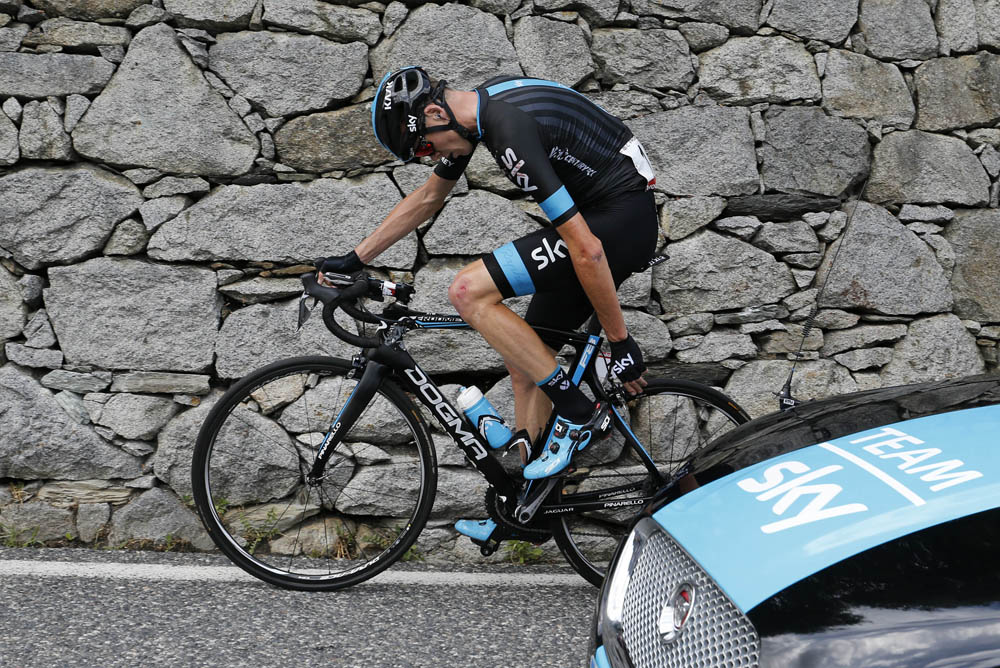
After a dominating display at the Tour de France to claim his second overall victory, Froome attempted to hold some of that form into the Vuelta and finally claim an overall victory.
He looked far from himself on the early mountain stages until a second place on Cumbre del Sol on stage nine. After that stage, he hovered towards the bottom of the top-10 at 1-18 to race leader Tom Dumoulin, but aimed to ride himself into form over the following stages to close the gap.
But Froome wouldn't be given the opportunity, with his race coming to an abrupt end in Andorra on stage 11.
An absolutely brutal stage of six climbs, with four category one climbs and an especial summit finish, this was always likely to be a stage that produced big time gaps.
Disaster struck for Froome early on though, as he crashed into a roadside barrier on the day's first climb, injuring himself.
He soldiered on, losing much of his time over the later climbs, but managed to hang on to finish the stage 8-41 down on the winner Mikel Landa and around five minutes down on Dumoulin.
It would be Froome's last heroics in the race though, with scans showing he'd broken a bone in his foot and wouldn't be able to continue.
He abandoned the race, and the overall Vuelta win would have to wait for another year at least.
2016 - An unexpected attack
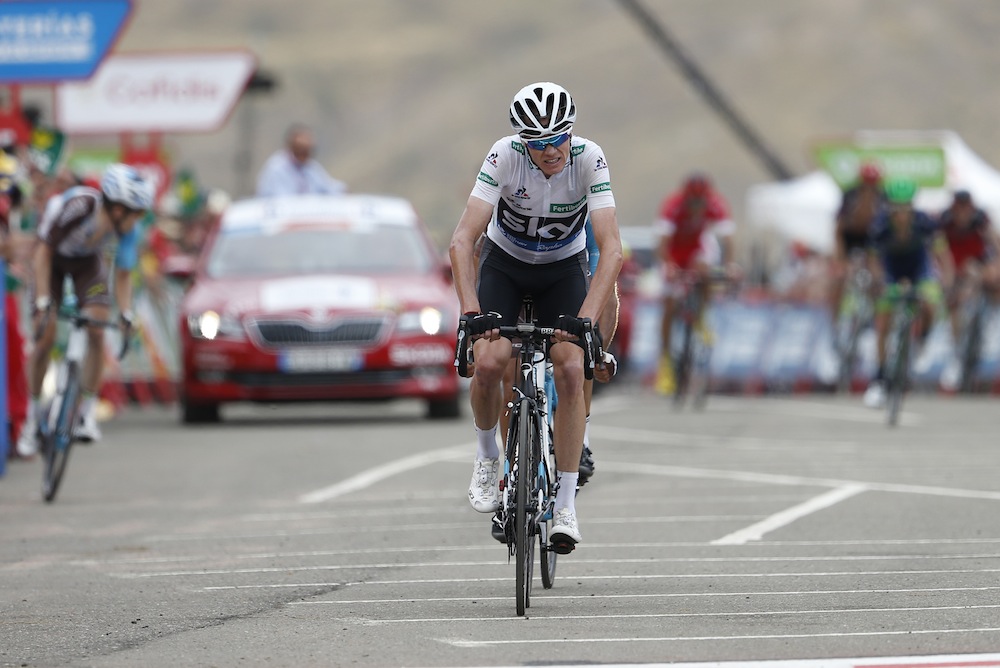
After another Tour win and a bronze at the Olympic Games time trial in Rio, Froome was determined to try his hand at finally getting the overall Vuelta victory.
It wasn't Contador this time, but Nairo Quintana that would prove Froome's undoing (though Contador would play a helping hand).
The first week hadn't shown Froome in great form, a trend over the past few attempt at the Vuelta as he struggled through the early stages, riding himself into form later on in the race.
Heading into the first rest day, Froome had already shelled 27 seconds to Quintana, with a long summit finish on the cards on stage 10 before the riders would get their day off.
Quintana attacked early and gained over a minute on Froome on the final climb of Lagos de Covadonga, but the Brit was able to fight back to cut the deficit to 25 seconds before the finish.
It wasn't ideal to be at 58 seconds to race leader Quintana by the first rest day, but Froome had shown he was gaining strength on the climbs.
The climbs ultimately weren't Froome's undoing though, with a disastrous error on the short stage 15 to Formigal where it really went wrong.
At this point, Froome had kept Quintana in touch and was at 54 seconds in second place, but an expected move from the gun on the 118.5km stage caught Froome and his Sky team-mates napping.
Froome himself had made a habit of unexpected attacks to win the Tour that year. He took the stage and the yellow jersey after attacking on the descent of the Peyresourde, before taking more time in the crosswinds to Montpellier.
But now he was the one caught out. Contador, out of contention and three minutes behind in the overall, threw caution to the wind and went away early on the stage. Movistar and Quintana were happy to oblige, and joined in to leave Sky and Froome trailing in their wake.
Froome was eventually able to form a chase group with other dropped riders over climbs towards the summit finish, but had no team-mates in support. That slip of concentration cost him dearly, and Froome has lost 2-27 and was 3-37 back in the overall by the end of the stage.
Once again, Froome was chasing the Vuelta from behind with a seemingly impossible gap to close.
He dominated the 37km time trial on stage 19 to Calpe to win and pull back 2-16 on Quintana, leaving him with a slender hope of overturning 1-21 on the final summit finish of Alto de Aitana.
Froome attacked, and attacked, and attacked on the final slopes but wasn't able to drop his Colombian rival, applauding him over the line knowing another second place was on the cards, and surely ruing that day to Formigal.

Thank you for reading 20 articles this month* Join now for unlimited access
Enjoy your first month for just £1 / $1 / €1
*Read 5 free articles per month without a subscription

Join now for unlimited access
Try first month for just £1 / $1 / €1
Follow on Twitter: @richwindy
Richard is digital editor of Cycling Weekly. Joining the team in 2013, Richard became editor of the website in 2014 and coordinates site content and strategy, leading the news team in coverage of the world's biggest races and working with the tech editor to deliver comprehensive buying guides, reviews, and the latest product news.
An occasional racer, Richard spends most of his time preparing for long-distance touring rides these days, or getting out to the Surrey Hills on the weekend on his Specialized Tarmac SL6 (with an obligatory pub stop of course).
-
 'It took everything' - Puck Pieterse outclimbs Demi Vollering to win La Flèche Wallonne
'It took everything' - Puck Pieterse outclimbs Demi Vollering to win La Flèche WallonneDutch 22-year-old shows Classics pedigree with first one-day victory
By Tom Davidson
-
 Tadej Pogačar flies to dominant victory at La Flèche Wallonne
Tadej Pogačar flies to dominant victory at La Flèche WallonneSlovenian takes second win at Belgian classic ahead of Kévin Vauquelin and Tom Pidcock
By Tom Thewlis
-
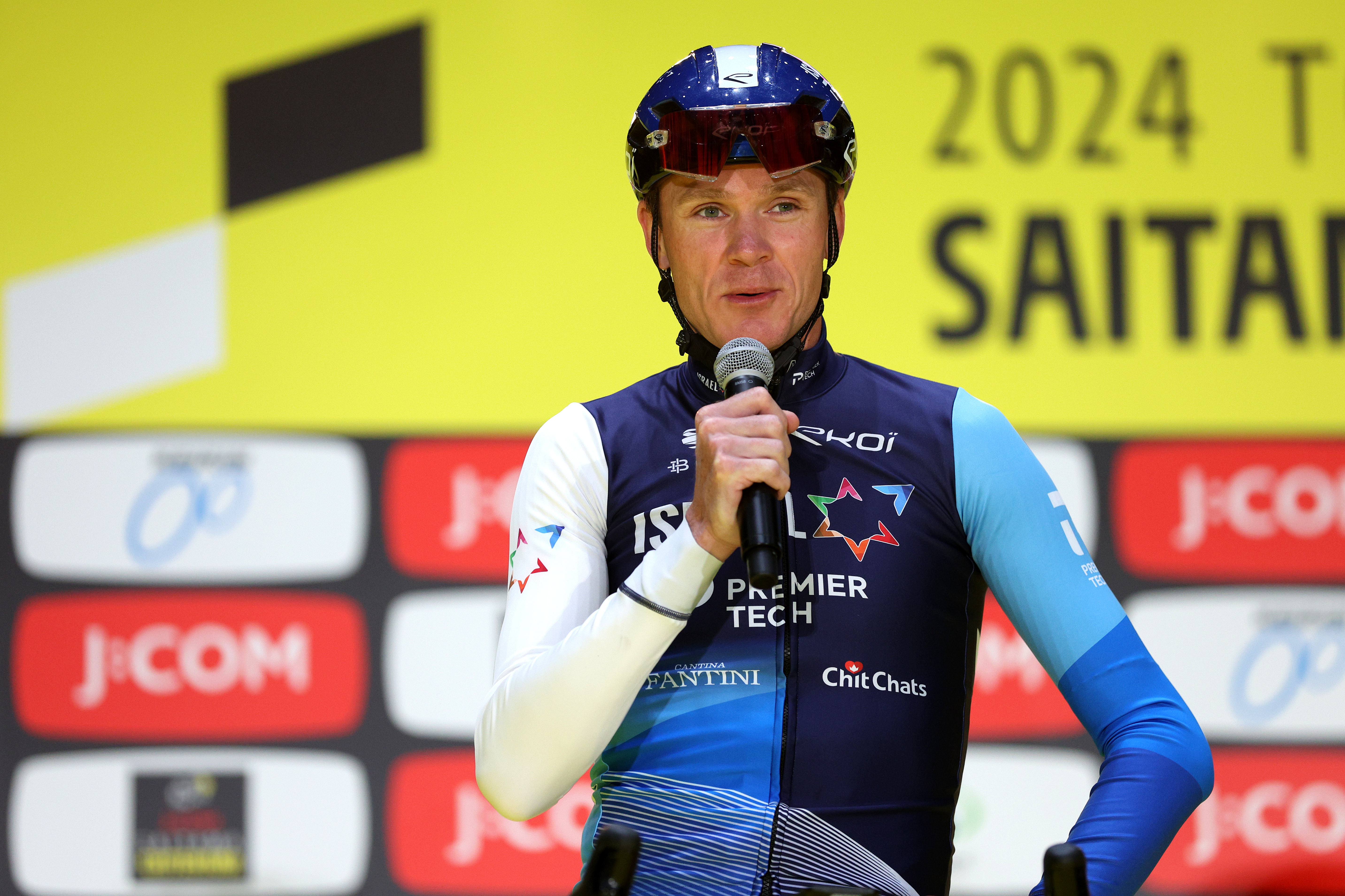 Chris Froome is 'keeping the door open' to racing in 2026 - could he ride on?
Chris Froome is 'keeping the door open' to racing in 2026 - could he ride on?39-year-old says his retirement isn't concrete yet
By Tom Davidson
-
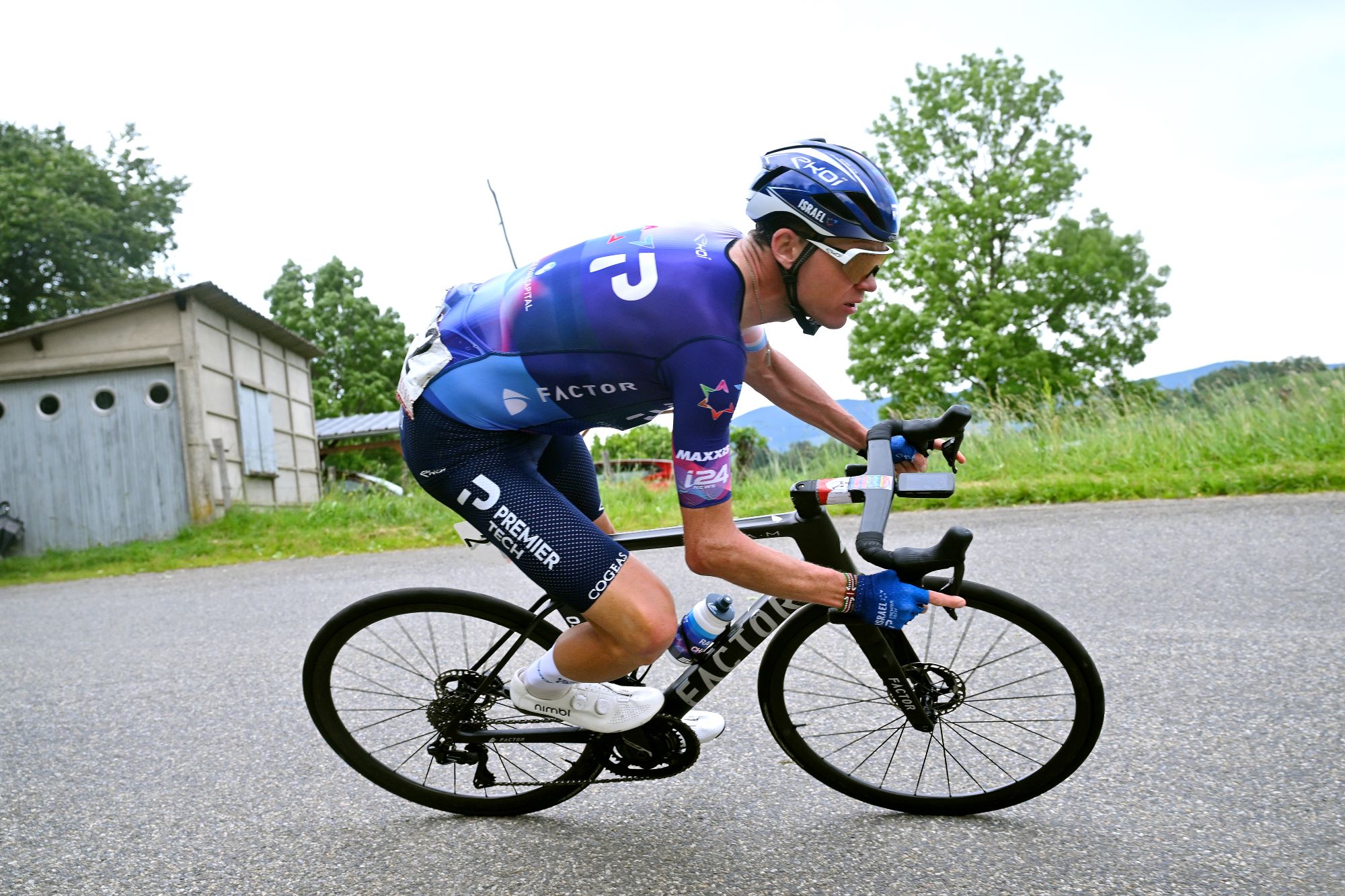 Chris Froome misses out on Tour de France selection
Chris Froome misses out on Tour de France selection39-year-old absent from Israel-Premier Tech's eight-rider roster
By Tom Davidson
-
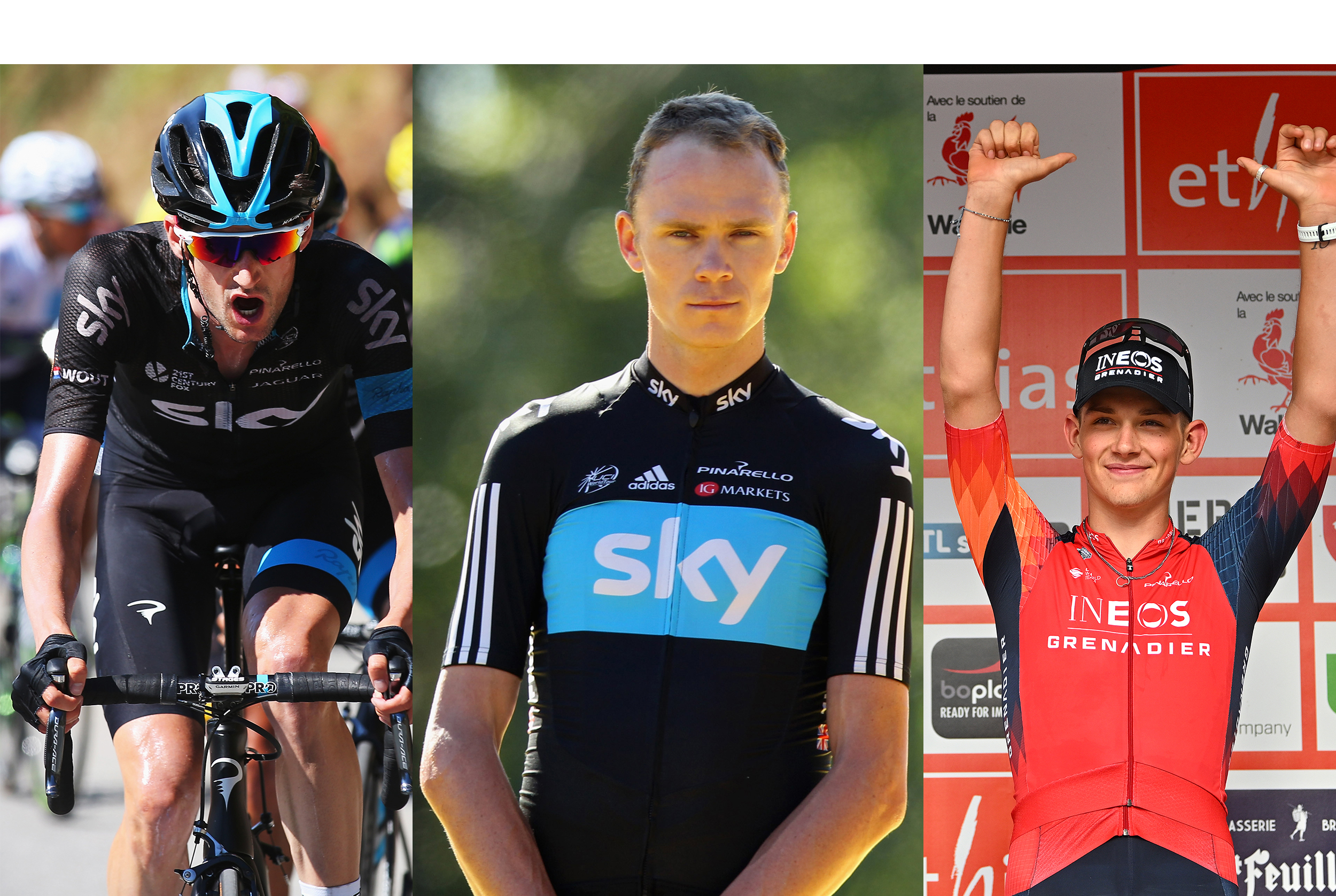 A complete history of Ineos Grenadiers kits, from Adidas to Gobik, via Rapha
A complete history of Ineos Grenadiers kits, from Adidas to Gobik, via RaphaThe British team switch to Gobik in 2024 after two years with Bioracer
By Tom Thewlis
-
 Chris Froome's boss rubbishes claims bike fit is behind lack of results
Chris Froome's boss rubbishes claims bike fit is behind lack of results'He can talk about his bike position until the cows come home - that's still not going to earn him a position on a Grand Tour team' says Israel-Premier Tech team owner Sylvan Adams
By Tom Thewlis
-
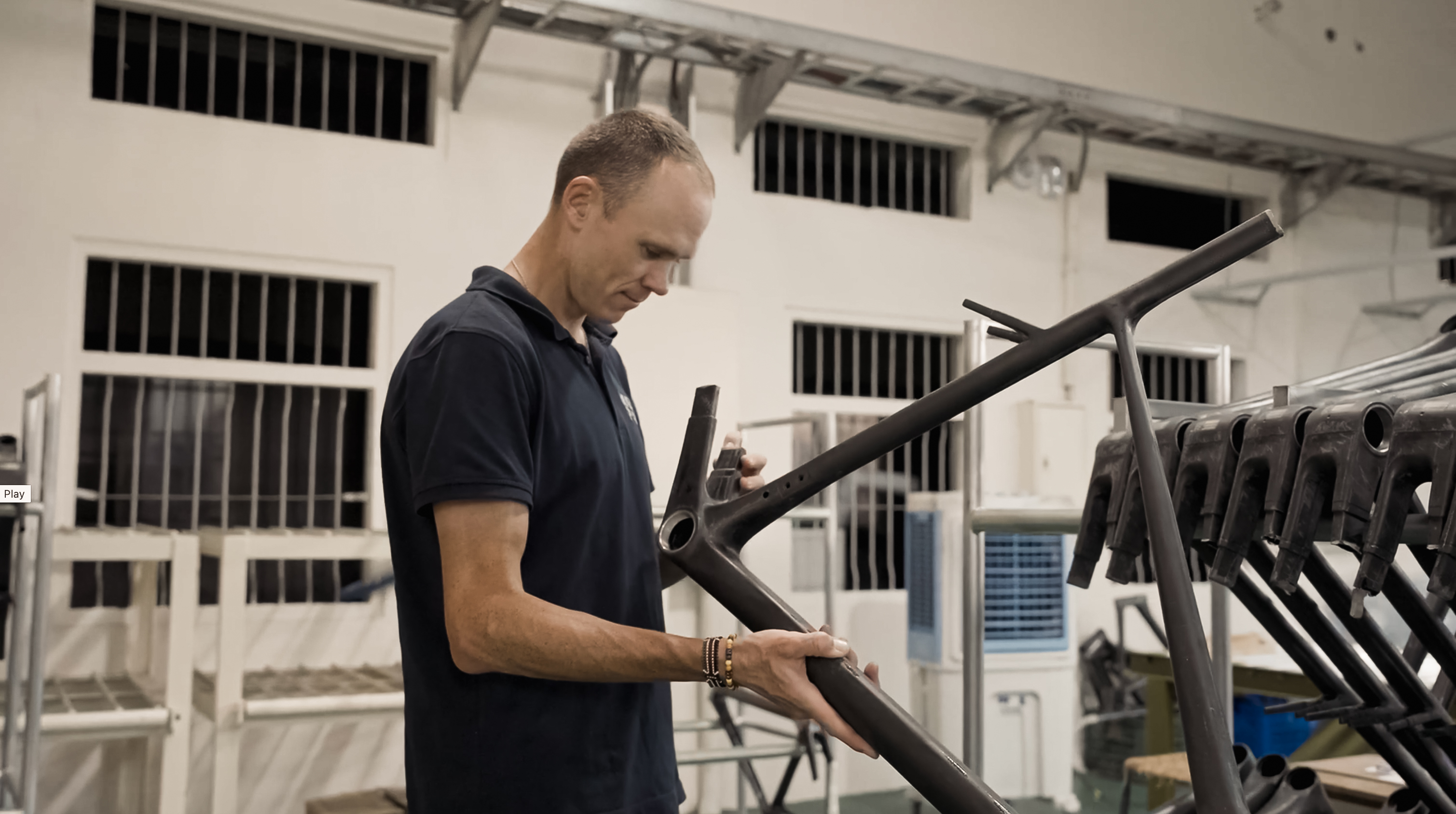 Chris Froome, rim brake evangelist, 'warms to' disc brakes
Chris Froome, rim brake evangelist, 'warms to' disc brakesThe Israel-Premier Tech rider, also an investor at Factor Bikes, says that he has "way less problems" with discs these days
By Adam Becket
-
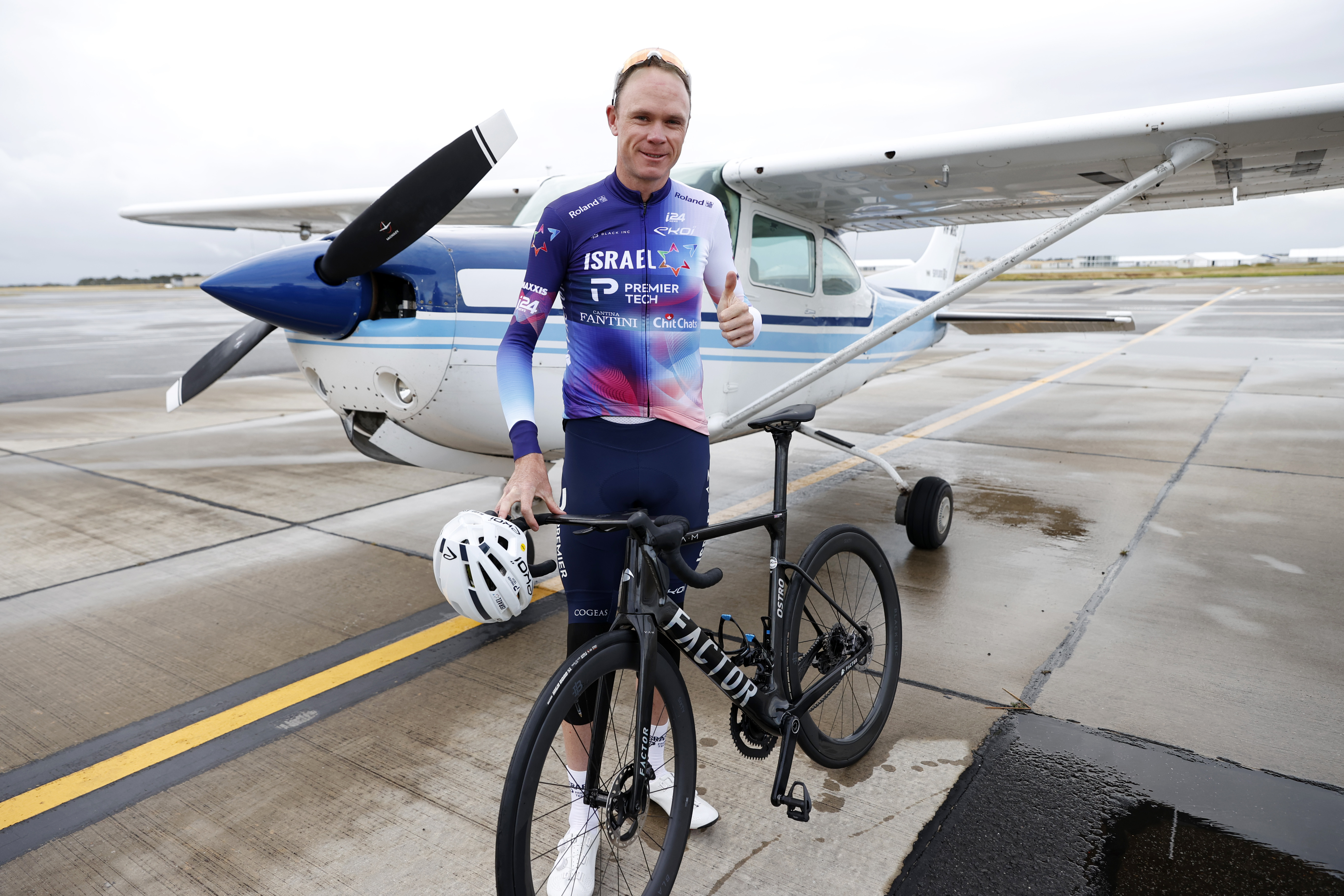 Is Chris Froome - in 2023 - a professional cyclist, or an influencer?
Is Chris Froome - in 2023 - a professional cyclist, or an influencer?The seven-time Grand Tour winner hasn't raced since July, but has taken to being interesting on social media
By Adam Becket
-
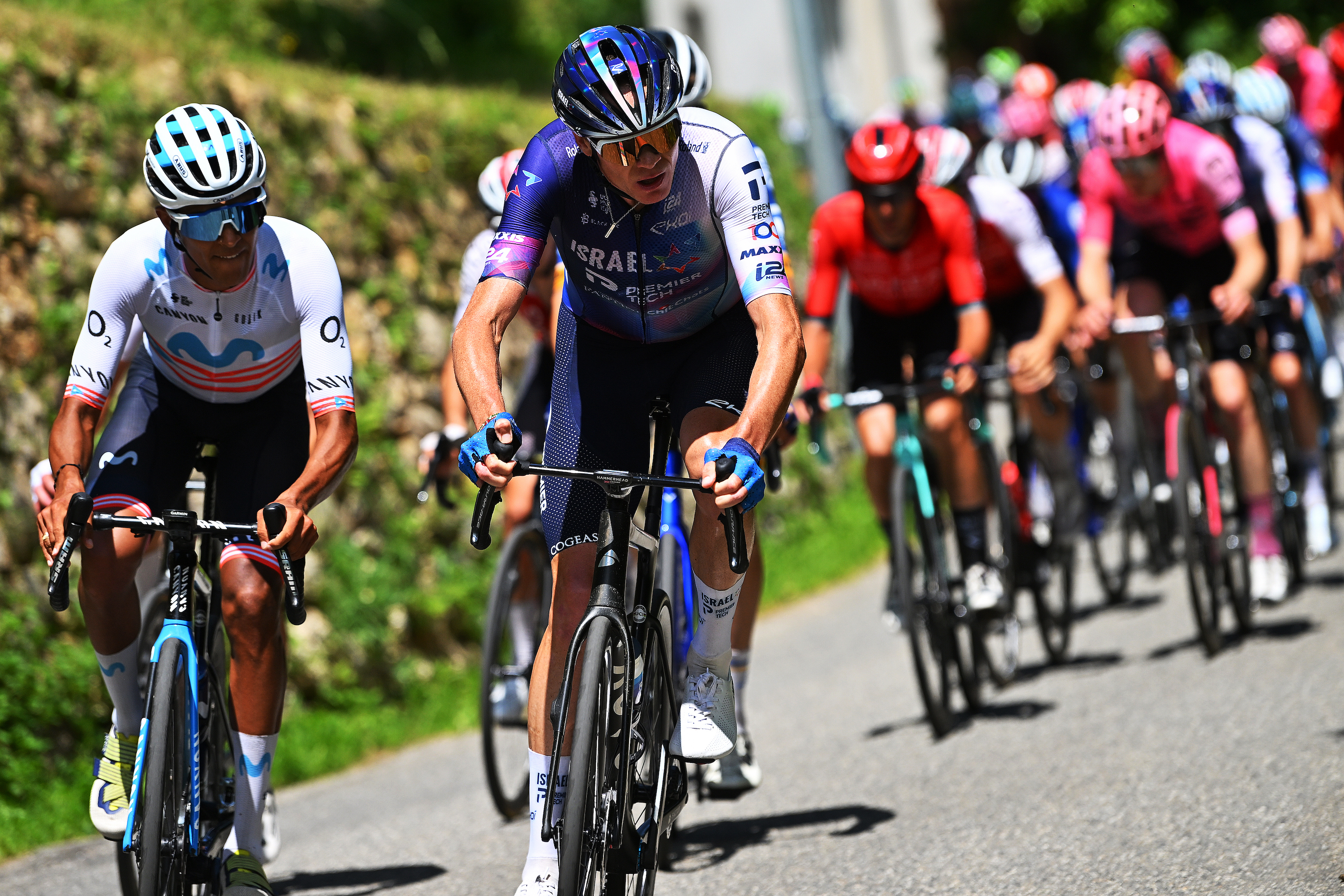 Chris Froome 'absolutely not' worth multi-million euro salary says his team boss
Chris Froome 'absolutely not' worth multi-million euro salary says his team bossThe four-time Tour de France winner was not selected for this year's Tour de France for performance reasons, Israel-Premier Tech boss Sylvan Adams says
By Chris Marshall-Bell
-
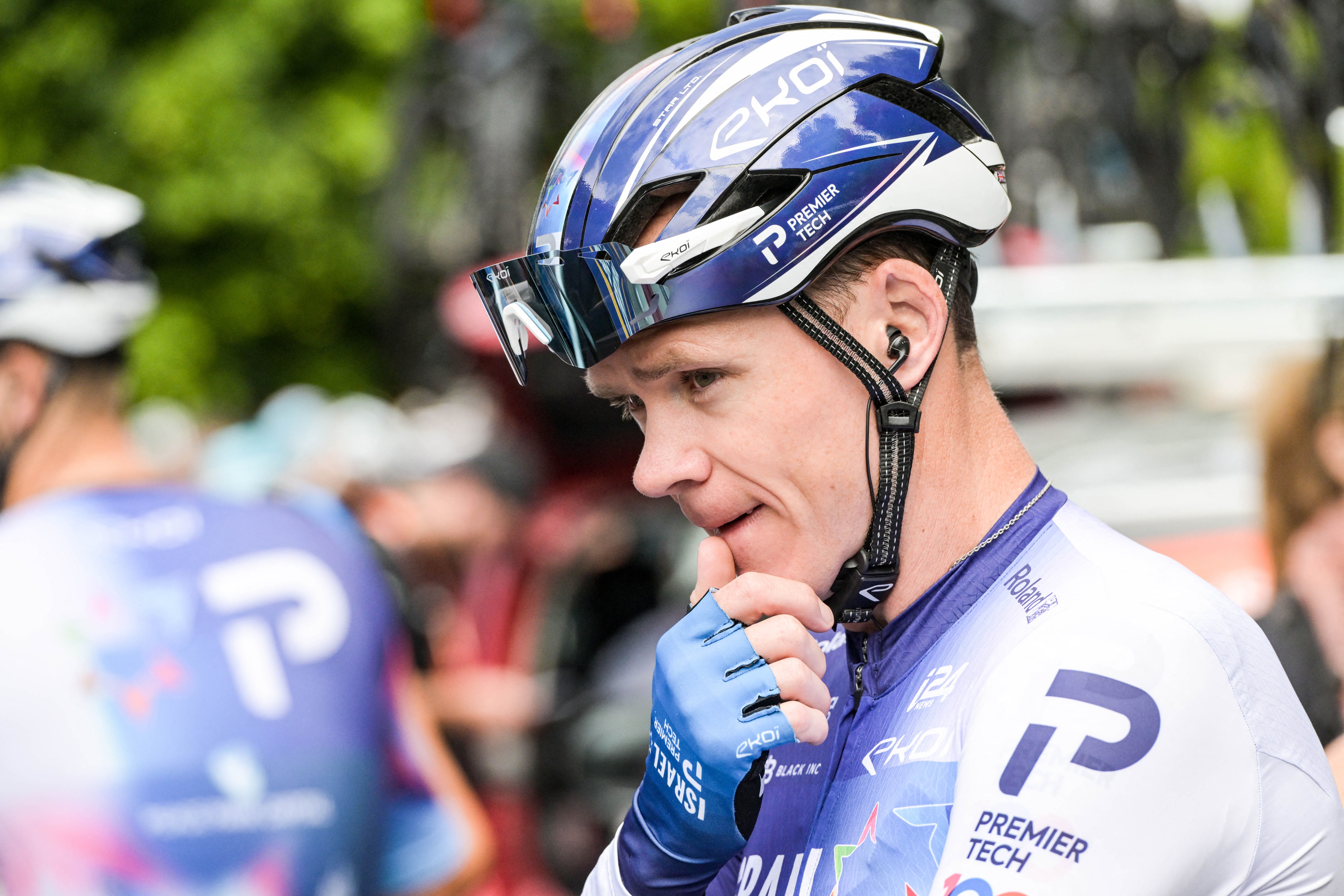 Chris Froome not selected for Tour de France 2023
Chris Froome not selected for Tour de France 202338-year-old misses out on 'ultimate goal' as Israel-Premier Tech confirm eight-man squad
By Tom Davidson